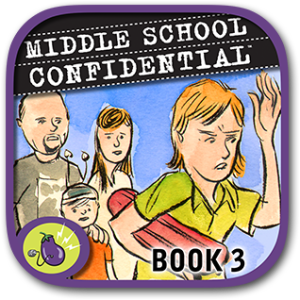|
|
December 22, 2014
Just started blogging for Huffington Post. Long time goal on my bucket list… check! I haven’t been at it for long, so you haven’t missed much. If you’d like to catch up, here’s where you can subscribe to my RSS feed and/or read the three articles I’ve posted so far.
Since I’m starting this gig during the holiday season, I’m seasoning my posts with holiday spirit. Like this one, from today: This Holiday Season Have Compassion for Relatives Who Drive You Nuts.
It’s a little funny and a little serious. Bottom line, we’ve all got folks in our extended family who can push our buttons like all get-out. (Not sure where that expression comes from but I’ve always liked the sound of it.) Don’t know about you, but when I get my chain yanked I’m at least as unpleasant as the aforementioned button-pushers. No fun for me or anyone else. So in this post I give tips for turning irritation into compassion. Why? So you (and I) can spread a little love in Aunt Gertrude’s direction while teaching our kids that there are times when we all need to put on our ‘company manners’ and be pleasant to everyone.
 Time to get together with the family… Go ahead, read it and you just might have a happier holiday. I hope so!

December 10, 2014
 I’m Annie Fox and I approve this message! I read lots of parenting books, but only recommend the top notch. That means they deliver pragmatic advice in small, well-organized, chunks of digestible wisdom. No big chunks, please. Who’s got the time? It helps a lot if the book’s tone is so engaging I can imagine the author talking to me over a cup of coffee. Also, it’s a good thing if the descriptions of parent-child interactions are so spot-on I’m chuckling and misting over throughout. (Yes, a good parenting book is as likely to make me cry as it is to have me laughing and calling out to David, “Sweetie, you’ve gotta hear this!”) Added requirement for any great parenting book: I have to learn something new. Not so easy because, as I said, I read loads of them.
For all the above reasons, I’m happy to recommend Dr. Deborah Gilboa’s latest book, Get the Behavior You Want Without Being the Parent You Hate. Before I tell you what I learned, let me tell you who needs this book – Any parent who has ever wondered if there’s a better way to get your child to:
1. Brush his/her teeth
2. Get along better with siblings
3. Quit whining about being “booooorrrrreeeed” and learn to manage their free time creatively
4. Do something you require without your constant nagging
… plus fifty other things that kids need to learn in order to be become respectful, responsible, and resilient young adults.
Dr. Gilboa, aka @AskDocG, is a practicing family physician, and a parenting expert. She’s also the mom of four boys who, have apparently brought her to edge of sanity more than once. In the book’s introduction she admits that she has “nagged, yelled at, threatened, and guilted my children to try to get them to behave well. Not all of the time, and usually not on purpose, but, just like many parents, I’ve done all this and more. Not only do I feel really horrible about it afterwards, but (and here is the kicker) it doesn’t work.” So you see, Doc G is also honest, humble and funny. What’s not to like?
Listen to my podcast interview with Doc G.
As for what I learned from Get the Behavior You Want… it came from section 5: What you do is more important than what you feel. Think about it for a minute. Most of the time we mindful parents do our best to get our children in touch with their feelings. “How do you feel now, sweetheart?” “And how did what he said this morning make you feel?” “How do you think you’ll feel about that tomorrow?” The message to kids: how they feel is pretty much the most important thing. Doc G points out that feelings are important, but they should not be accepted as an excuse for poor behavior. Something parents do all the time!
We do it when we say, “Oh, she’s just in a bad mood.” “He’s had a hard day.” “She’s overtired.” Doc G teaches that we need to help our kids become accountable for their behavior. And we can accomplish that by empathizing with our kids’ feelings (“I understand why that made you angry….”) while still sticking with our standards of behavior (“….but biting is totally unacceptable in this family. And here’s the consequence for the doing it…”)
It’s not always easy for an unhappy, overtired child to accept responsibility for his or her actions, but parenting is all about clear standards and consistent responses, isn’t it?
Thanks, Doc G!
Try making this shift in the way you deal with unacceptable behavior from your kids and let me know how it goes.

December 6, 2014
Still chugging along on The Girls’ Q&A Book on Friendship blog tour. Since early November I’ve stopped at 20 blogs, logged thousands of virtual miles, and answered over 100 friendship-related questions. This question comes from educational psychologist Amy Fortney Parks, founder of TheWiseFamily.com. It’s an important one because when it comes to conflicts between our kids and someone else’s, it can be tricky to know when to step up and when to step back.
How do I talk to my daughter’s friend’s moms about some of the dynamics happening between the girls without being judgmental?
 What did you say about my kid? Annie: Because you don’t want to create more drama than the girls have already dished up on their own, you must communicate to the other mom respectfully, otherwise, you’re going to make things worse. You don’t need me to tell you how parents get instantly and intensely defensive when someone criticizes their children. Hello, Mama Bear! So, think about what you want to say and take at least ten slow deep re-centering breaths before you say it. (Seriously. Breathe.)
Here’s a trick I know about expressing something the other person is unlikely to want to hear: Soften your heart and speak calmly. You might say something like this: “I’ve been noticing some tension between my Gabriella and your Celeste. I’m wondering if you’ve noticed it too?” By starting the discussion this way, you are inviting the other parent in, rather than pushing her away with accusations. You’re asking her to take part in the problem-solving, parent to parent. This is very different from saying something like this: “Celeste has been so mean to Gabriella. My poor daughter cries herself to sleep each night. What kind of girl are you raising?!”
Choices matter when it comes to our words, tone of voice, attitude. This is a lesson we want to teach our daughters so they’ll be more likely to stop, re-center, and think before they act. It helps tremendously when we model it in our own lives too.
Bonus Question for you> How are you teaching your kids to be aware of the way they speak to other people?

August 14, 2014
Your Mom sees one dirty spoon on the sink counter and starts yelling. You politely ask Dad for movie money and he walks past you muttering something about “…growing on trees.” You excitedly tell your daughter, “Keep Saturday open, sweetie, we’re going…” but before you finish, she bursts into tears. Your son is nothing but rude to his little brother and when you try to reason with him he loudly accuses you of not loving him.
 What’s up with my family? There’s an app for that! Later you sit at the dinner table. No one talks or even looks at each other. Yet you’re all connected by a silent question: “What’s up with my family?!”
What’s that you say? Never wondered about that? Bolderdash! For centuries parents and kids have asked themselves “What’s up with my family?” Now, finally, here in the glorious Digital Age, there comes an app with some answers!! I know it’s good, because I wrote it. But don’t just take my word for it, here’s what Carisa Kluver of Digital Storytime has to say:
“Fox covers issues that range from over-protective parents to abandonment and loss deftly in this graphic novel for readers 10 and up. What’s Up with My Family? is a book app with brilliant storytelling, movie-quality sound effects and seamlessly integrated features. Electric Eggplant has set the gold standard for presenting graphic novels in the digital realm. My highest recommendation!”
Bolderdash aside, when it comes right down to it, we love our family. We really do! And sometimes they drive us nuts. Without doubt, we sometimes do our part to drive them nuts too. Even though all families are different, they all have ups and downs.
This is an app for every kid (and parent) who’s ever wondered, “What’s Up With My Family?” It may help you understand the people in your family better. It may also help you use your power to improve things at home. Sometimes you can do that by talking about how you feel. Sometimes, change happens when you shift your attitude and decide to be more cooperative.
Get it now, for your family and you might start talking and laughing at dinner again.
(Press release can be viewed here.)
 — Older Posts »
| |















